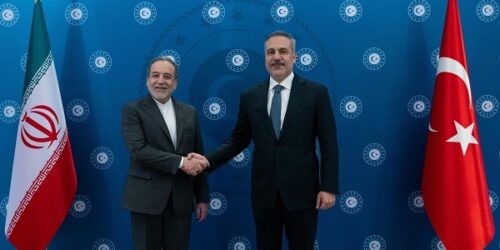
Foreign Policy: Azerbaijan and other opportunistic regimes shape the biggest geopolitical crises
In May, pro-independence demonstrations spread across New Caledonia, a small Pacific island territory that has been ruled by France since 1853, Foreign Policy writes.
Waving the flags of the indigenous people, they raised another one – the flag of Azerbaijan. The similar colors of the flags of New Caledonia and Azerbaijan led some to think that the protesters had inadvertently acquired the wrong flag, while others saw the presence of the Azerbaijani flag as an indicator of ideological support for Baku.
It turns out that the presence of Azerbaijani flags was not a mistake. Since March 2023, Baku has provided strategic support to the New Caledonian independence movement under the guise of anti-colonial solidarity. In response to France’s diplomatic support for Armenia following Azerbaijan’s invasion of Artsakh in 2020, Baku has spread anti-French disinformation about New Caledonia.
The incident in New Caledonia can hardly be called the only one. Anti-colonialism, which emerged as a powerful ideological force in the 1960s and 1970s, is making a resurgence, and its philosophical bases continue to shape the biggest geopolitical crises of the day, from Gaza to Ukraine. But unlike the Cold War era, this wave of decolonization movements is driven by opportunistic, illiberal regimes that use anti-colonial rhetoric to advance their own geopolitical agendas and, paradoxically, colonial-style land grabs.
Authoritarian governments in Eurasia have moved their influence operations to social media platforms, where they hope to fuel discontent. This applies not only to Azerbaijan, but also to China, Iran, and Russia located south of the Sahara.



